
B Corps certification is a badge of honor for a groundbreaking group of North Bay businesses. They share a fervent belief that business has the power to be a force for good and the ability to make their communities and the world better. Thus, social responsibility and a concern for the environment are measures of success on par with a company’s bottom line. And, increasingly, the people who buy their products or use their services, expect companies to embrace that philosophy, increasing the odds of success for those who do and making benefit corporations a trend on the upswing.
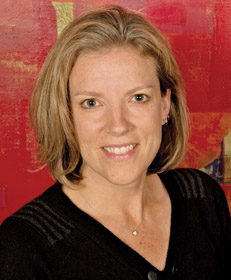 Heather Paulsen, a consultant based in Fort Bragg on the Mendocino coast, works with companies in the North Bay and across the country to help them attain B Corp certification. “It combines idealism and believing that wonderful things are possible with business savvy. It allows people to make a living while having a strong sense of purpose,” she says. While many companies have operated with the values being a B Corp represents for years, certification is a relatively new concept. Paulsen explains that B Lab, the nonprofit organization that provides the assessment a business must successfully complete to become a B Corp, began certifying companies in 2007. It took several years for the first 1,000 companies to qualify. The number has since increased to more than 2,600 B Corps in 150 industries in 60 countries around the world, all with a common purpose to redefine success in business. The B Corp movement is growing quickly, as more businesses seek certification to validate their underlying principles.
Heather Paulsen, a consultant based in Fort Bragg on the Mendocino coast, works with companies in the North Bay and across the country to help them attain B Corp certification. “It combines idealism and believing that wonderful things are possible with business savvy. It allows people to make a living while having a strong sense of purpose,” she says. While many companies have operated with the values being a B Corp represents for years, certification is a relatively new concept. Paulsen explains that B Lab, the nonprofit organization that provides the assessment a business must successfully complete to become a B Corp, began certifying companies in 2007. It took several years for the first 1,000 companies to qualify. The number has since increased to more than 2,600 B Corps in 150 industries in 60 countries around the world, all with a common purpose to redefine success in business. The B Corp movement is growing quickly, as more businesses seek certification to validate their underlying principles.
The process begins with an assessment that companies find on the B Corp website. “It’s really a deep dive,” says Paulsen. She explains that B Assessment is like a big multiple-choice framework that requires a company to look at every decision it makes, formalize best practices and examine its structure. Any for-profit business is eligible for B Corp certification if it scores at least 80 out of 200 possible points. Once B Corp certified, it must amend its governing documents to include stakeholder consideration; this legal requirement is one reason B Corp certification is uniquely strong. A corporation must also amend its articles of incorporation to allow directors to make decisions based on the best interest of all stakeholders, not just its shareholders. While profit is important, it’s not the only factor, and Paulsen points out that benefit corporation articles of incorporation attempt to remedy problems of shareholder primacy, which drives non-benefit companies to focus only on maximizing profits when doing so may not be in the best interest of other stakeholders (such as employees or the environment). Any for-profit company in states that allow benefit corporations can amend their legal structure with language to allow stakeholder consideration. So far, 34 states, including California, have passed legislation that permits companies to amend their articles to become a legal benefit corporation. The B Corp stakeholder language requirement varies depending on the legal structure of a business, so an LLC uses different language than a corporation. [Nonprofits are mission-driven, so they already have principles similar to those of a B Corp built into their structure and don’t need certification.] The goal of B Corps is to shift the for-profit economy so that businesses will help solve social and environmental problems.
Companies have a variety of reasons for seeking certification. Some are already values-aligned and want recognition for their practices, while others use it as a way to make improvements. Yet, others might have a founder who is approaching retirement and wants to use certification as a tool for succession planning. Certification is a way to build the values into the fabric of the company and the legal structure so the good work it does will stay in place after the founder leaves, Paulsen explains. In addition, some businesses make attaining B Corp status a goal when they’re just beginning. “One company I’m working with is only 18 months old,” she reports. “They’re using the assessment to build a strong structure.”
A sustainable goal
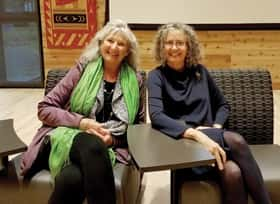 Clear Blue Commercial, of Petaluma, aimed at becoming a B Corp from the outset. A full-service brokerage, sustainability, consulting and project-management firm, it was founded in 2014 and is dedicated to saving the planet through real estate. Carolyn Pistone, president and managing director, observes that people don’t necessarily think of commercial real estate in terms of sustainability. “Buildings are a line on somebody’s spreadsheet,” she observes. She reports, however, that commercial buildings are the largest single source of carbon emissions in the world, and Clear Blue looks for ways to improve their clients’ properties by making them environment-friendly while also saving money. At one building, they converted all the lighting to LEDs, replanted turf with drought-tolerant plants, installed drip systems, used non-VOC paint and added an electric vehicle charging station. In doing so, they added amenities that attracted clients, reduced carbon dioxide emissions and gave employees a nice perk. “As a landlord, you’ve given a differentiator to your building, and you’re saving money on top of it, because you’re saving all that energy,” Pistone points out. “We’re out to prove that sustainability more than pays for itself and is essentially the building block of our future economy.”
Clear Blue Commercial, of Petaluma, aimed at becoming a B Corp from the outset. A full-service brokerage, sustainability, consulting and project-management firm, it was founded in 2014 and is dedicated to saving the planet through real estate. Carolyn Pistone, president and managing director, observes that people don’t necessarily think of commercial real estate in terms of sustainability. “Buildings are a line on somebody’s spreadsheet,” she observes. She reports, however, that commercial buildings are the largest single source of carbon emissions in the world, and Clear Blue looks for ways to improve their clients’ properties by making them environment-friendly while also saving money. At one building, they converted all the lighting to LEDs, replanted turf with drought-tolerant plants, installed drip systems, used non-VOC paint and added an electric vehicle charging station. In doing so, they added amenities that attracted clients, reduced carbon dioxide emissions and gave employees a nice perk. “As a landlord, you’ve given a differentiator to your building, and you’re saving money on top of it, because you’re saving all that energy,” Pistone points out. “We’re out to prove that sustainability more than pays for itself and is essentially the building block of our future economy.”
At another building, which needed a landscaping makeover during the drought, a contractor submitted a plan that would take 32 years to result in savings on water. It wasn’t practical, so Pistone contacted the water agency and the City of Petaluma and launched a Mulch Madness project that used volunteer labor and got donations of mulch, compost and components for a drip irrigation system. The contractor who missed out contributed equipment and labor. In addition, Clover Sonoma donated yogurt, massage therapists provided chair massages and three bands played. “We made it a festival,” she says. As a result of their cooperative effort, the turf-conversion project saves 3 million gallons of water a year, and it took only one day. “We made this wonderful change and brought the community together to take action,” she says. It also gave the property’s owner, who lives outside the area, a new understanding of a community that is resource-challenged.
With concern for government, community, workers and the environment all involved in its practices, Clear Blue Commercial embodied the principles of the B Corp philosophy, and “We wanted to be a B Corp right away,” says Pistone. The company didn’t have a history, though, and so it didn’t have enough information for the assessment and had to wait until 2016 to receive certification. When the time was right, however, it was prepared. Compiling the documentation B Lab requires is a rigorous process. “We were able to get all our stuff together fairly easily,” she says, adding that it took two to three months and required the company to make some changes. For example, one of the questions they had to answer during the certification process was whether employees have pro bono time to do work for charities. Although Clear Blue did have such a program, they had to document their policy and distribute it to employees to formalize it so they could earn five points on the assessment. It was one of several things Clear Blue already did informally because it’s what they believe in and who they are, but to get points, they had to write all of them into the company’s policy so they would be specific and binding. “It’s a big commitment,” she adds. “If I go to a store and see that B Corp logo, I know instantly what they’ve had to do.”
A long track record
 In contrast, Traditional Medicinals of Sebastopol had been in business for decades, when it decided to become a B Corp. “We’re a botanical wellness company, and our purpose is to connect people to the power of plants to change lives,” says Blair Kellison, chief executive officer. “We started in 1974, and we’ve always had the values and philosophy of a B Corp.” He explains that certification seemed like a good idea, because it provided validation and was a way to let people know about the company’s philosophy, if they weren’t already familiar with it. It also provided a way to measure achievements. “You can’t manage what you can’t measure,” says Kellison. He explains that the process allows a business to identify areas where it’s not doing well, in addition to those where it excels, so it can focus on those where it can perform better. “We can look at it over time and try to improve, and we love that,” he says.
In contrast, Traditional Medicinals of Sebastopol had been in business for decades, when it decided to become a B Corp. “We’re a botanical wellness company, and our purpose is to connect people to the power of plants to change lives,” says Blair Kellison, chief executive officer. “We started in 1974, and we’ve always had the values and philosophy of a B Corp.” He explains that certification seemed like a good idea, because it provided validation and was a way to let people know about the company’s philosophy, if they weren’t already familiar with it. It also provided a way to measure achievements. “You can’t manage what you can’t measure,” says Kellison. He explains that the process allows a business to identify areas where it’s not doing well, in addition to those where it excels, so it can focus on those where it can perform better. “We can look at it over time and try to improve, and we love that,” he says.
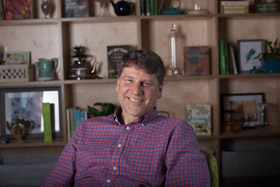 Traditional Medicinals began working with B Lab, the nonprofit that certifies B Corps, in 2009. While it already had the requisite values, it also wanted the rigor that goes with doing the assessment. To make the grade, it had to provide quantifiable evidence, not just general ideas. “The reporting was super challenging. Everybody initially looked at it as a whole lot of extra work,” says Kellison, but even that had led to an improved practice. “Now, years later, we collect our data internally in a way that allows us to use it for B Corp reporting,” he says, making recertification easier. In addition, it’s a method that provides transparency, so anyone associated with the company can see how it’s doing, including employees, suppliers or vendors of its products.
Traditional Medicinals began working with B Lab, the nonprofit that certifies B Corps, in 2009. While it already had the requisite values, it also wanted the rigor that goes with doing the assessment. To make the grade, it had to provide quantifiable evidence, not just general ideas. “The reporting was super challenging. Everybody initially looked at it as a whole lot of extra work,” says Kellison, but even that had led to an improved practice. “Now, years later, we collect our data internally in a way that allows us to use it for B Corp reporting,” he says, making recertification easier. In addition, it’s a method that provides transparency, so anyone associated with the company can see how it’s doing, including employees, suppliers or vendors of its products.
 One of the goals is to demonstrate to others that having a social business model makes a difference in people’s lives. Traditional Medicinals strives to avoid exploiting either people or the planet, so it embraces organic agricultural practices and fair wages. It collects the ingredients for its products from around 40 countries on six continents, but its most-used herb, senna, comes from the desert in the Indian state of Rajasthan. The area is the largest inhabited desert in the world with 2 million impoverished people. “We go to all the places where we grow our herbs and find things that are needed in the community,” says Kellison. The company typically keeps some staff in India for several months of the year to learn what the people need most. In Rajasthan, the company, in partnership with Traditional Medicinals Foundation and WomenServe, built and now operates five primary schools—constructing the buildings, hiring teachers, providing lunch for students, outfitting them with uniforms and providing them bicycles so they can get to and from class. One of the requirements is that girls attend school equally with boys, and 1,000 children are enrolled. “The communities where we’ve built schools are the areas of greatest need,” says Kellison. It’s an example of how a socially responsible company can improve lives. “If you’re going to run a business with those principles, you might as well get certified to verify your philosophy,” he says.
One of the goals is to demonstrate to others that having a social business model makes a difference in people’s lives. Traditional Medicinals strives to avoid exploiting either people or the planet, so it embraces organic agricultural practices and fair wages. It collects the ingredients for its products from around 40 countries on six continents, but its most-used herb, senna, comes from the desert in the Indian state of Rajasthan. The area is the largest inhabited desert in the world with 2 million impoverished people. “We go to all the places where we grow our herbs and find things that are needed in the community,” says Kellison. The company typically keeps some staff in India for several months of the year to learn what the people need most. In Rajasthan, the company, in partnership with Traditional Medicinals Foundation and WomenServe, built and now operates five primary schools—constructing the buildings, hiring teachers, providing lunch for students, outfitting them with uniforms and providing them bicycles so they can get to and from class. One of the requirements is that girls attend school equally with boys, and 1,000 children are enrolled. “The communities where we’ve built schools are the areas of greatest need,” says Kellison. It’s an example of how a socially responsible company can improve lives. “If you’re going to run a business with those principles, you might as well get certified to verify your philosophy,” he says.
Pioneering practices
 Clover Sonoma has always been a leader in the dairy industry, working with family farms, being part of the community and connecting with consumers. “We aspire to be more than just dairy products,” says Kristel Corson, vice president of sales and marketing. The company had attained several certifications over the years and worked with the American Humane Society to create the first set of standards for the ethical treatment of animals, becoming the first dairy in the country to be American Humane Certified. Then, in 2016, it became a B Corp. Corson explains that chief executive officer Marcus Benedetti was the visionary who initiated the company’s efforts to become certified, and 2016 was the ideal time, because the company was unrolling a new identity as Clover Sonoma, and attaining B Corp status could coincide with its rebranding. “We launched it and sent notices out to consumers through new packaging,” she says.
Clover Sonoma has always been a leader in the dairy industry, working with family farms, being part of the community and connecting with consumers. “We aspire to be more than just dairy products,” says Kristel Corson, vice president of sales and marketing. The company had attained several certifications over the years and worked with the American Humane Society to create the first set of standards for the ethical treatment of animals, becoming the first dairy in the country to be American Humane Certified. Then, in 2016, it became a B Corp. Corson explains that chief executive officer Marcus Benedetti was the visionary who initiated the company’s efforts to become certified, and 2016 was the ideal time, because the company was unrolling a new identity as Clover Sonoma, and attaining B Corp status could coincide with its rebranding. “We launched it and sent notices out to consumers through new packaging,” she says.
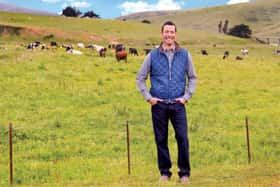 The business started distributing Clover products as the Petaluma Cooperative Creamery in 1916, and its founder, Gene Benedetti—Marcus’ grandfather—was a big believer in corporate responsibility and giving back to the community. B Corp practices are part of its history, although informally, and its three pillars—Elevating Dairy, Empowering Future Generations and Supporting the “Clommunity”— are formalized in its Clover Cares policy. It also donates at least 5 percent of its profits to charities in the community. Clover (formerly Clover Stornetta) worked with Paulsen, and the entire process took six months. And with the company’s record in social give-back, working with family farms to achieve organic and non-GMO verification, it exceeded the 80-point bar to get 97 points on the assessment. Although it was an excellent outcome, it was challenging as well, because Clover had a short timeline, and B Lab can decide to audit at any point. It’s random, and a company doesn’t know what the audit will focus on, so it’s a demanding process. “You have to be dedicated as a company,” says Corson.
The business started distributing Clover products as the Petaluma Cooperative Creamery in 1916, and its founder, Gene Benedetti—Marcus’ grandfather—was a big believer in corporate responsibility and giving back to the community. B Corp practices are part of its history, although informally, and its three pillars—Elevating Dairy, Empowering Future Generations and Supporting the “Clommunity”— are formalized in its Clover Cares policy. It also donates at least 5 percent of its profits to charities in the community. Clover (formerly Clover Stornetta) worked with Paulsen, and the entire process took six months. And with the company’s record in social give-back, working with family farms to achieve organic and non-GMO verification, it exceeded the 80-point bar to get 97 points on the assessment. Although it was an excellent outcome, it was challenging as well, because Clover had a short timeline, and B Lab can decide to audit at any point. It’s random, and a company doesn’t know what the audit will focus on, so it’s a demanding process. “You have to be dedicated as a company,” says Corson.
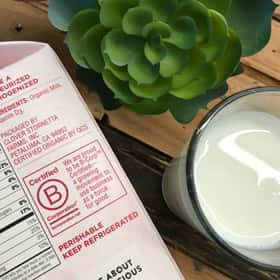 The high score was a signification accomplishment, but Clover could still get an additional 103 points and wanted to do more. Corson explains that Clover has a road map, which is the next ring of points for recertification, and it allowed the company to work on several areas for improvement. One focused on getting in tune with employees by distributing satisfaction surveys, while another supports their volunteer efforts through a formal program. In Clover Power Hours, workers report their volunteer hours, and for every 25 hours, the company awards a $250 grant to the nonprofit of their choice. In addition, they discovered they could learn more and be more transparent about their supplier network, and the result was a supplier survey. The company is also working on an annual impact report to share with the public. Corson explains that Clover’s mission is to provide the highest quality products from family farms that care about the environment and the animals. “We’re trying to lead the way,” she says. She observes that seeking B Corp status gives a business a chance to find out what its potential is, in addition to what it does well, and that certification is becoming more known, especially within the millennial generation and educated consumer. “It’s an advantage to be a B Corp. It does help build the brand,” she says.
The high score was a signification accomplishment, but Clover could still get an additional 103 points and wanted to do more. Corson explains that Clover has a road map, which is the next ring of points for recertification, and it allowed the company to work on several areas for improvement. One focused on getting in tune with employees by distributing satisfaction surveys, while another supports their volunteer efforts through a formal program. In Clover Power Hours, workers report their volunteer hours, and for every 25 hours, the company awards a $250 grant to the nonprofit of their choice. In addition, they discovered they could learn more and be more transparent about their supplier network, and the result was a supplier survey. The company is also working on an annual impact report to share with the public. Corson explains that Clover’s mission is to provide the highest quality products from family farms that care about the environment and the animals. “We’re trying to lead the way,” she says. She observes that seeking B Corp status gives a business a chance to find out what its potential is, in addition to what it does well, and that certification is becoming more known, especially within the millennial generation and educated consumer. “It’s an advantage to be a B Corp. It does help build the brand,” she says.
B Corp Economy
Local B Corps are early adopters, but indications are that earning B Corp certification is a wise move. “Research shows that B Corps are outperforming traditional companies,” says Paulsen, and small businesses with certification have a 90 to 99 percent survival rate compared to only 69 percent for those who don’t. And she sees them as having the potential to change the economy. “The vision is that all companies will compete, not just to be the best, but to be the best for the world. I think it’s possible to for us to shift the way we do business to be of benefit to society and the environment,” she says. “It’s imperative.”
The kind of sensibility that B Corps bring to the marketplace is something that a new generation of consumer expects, perhaps making a changing economy inevitable. Kellison reports that Millennials want to know where products come from and how they’re made before they make purchases. “They’re inquisitive,” he says, “and it’s difficult to be transparent and give them the information they demand without certification.” He believes that, ultimately, companies won’t get their business without it. It’s a trend that’s already occurring in the B Corp community. When Traditional Medicinals raised some money, the firm providing investment capital, the investment banker and attorney were all B Corps. “It helps attract talent, suppliers and investors,” says Kellison. “We’re trying to inspire others to be like us, and it will make you more successful. There’s nothing bad about being a B Corp.”
Becoming a B Corp
Businesses seeking B Corp certification start with the B Impact Assessment (BIA). Here’s how it works.
•Questions are on topics such as governance, workers, community and the environment, and they are tailored to a company’s size, sector and geography.
•Companies can compare their answers to those of other businesses to find out what others are doing and get ideas for ways to improve.
•A company must score at least 80 points on the assessment to be certified. When it gets a high enough score to qualify, B Lab staff schedules a virtual appointment to review the assessment and asks for documentation to validate the answers.
•B Corps update their BIA and verify their updated score every three years.
•Cost per year is on a sliding scale, depending on the size and structure of the community, and ranges from $500 to $50,000.
For more information about BIA, visit https://bcorporation.net
The B Corp Declaration of Independence
We envision a global economy that uses business as a force for good. This economy is comprised of a new type of corporation—the B Corporation—which is purpose-driven and creates benefit for all stakeholders, not just shareholders. As B Corporations and leaders of this emerging economy, we believe:
• That we must be the change we seek in the world.
• That all business ought to be conducted as if people and place mattered.
• That, through their products, practices, and profits, businesses should aspire to do no harm and benefit all.
• To do so requires that we act with the understanding that we are dependent upon another and thus responsible for each other and future generations.
Source: B Corporation
B Corporation in the North Bay
Clear Blue Commercial, Petaluma
Clover Sonoma, Petaluma
Dhana, Sausalito
Direct Dental, Larkspur
EO Products, San Rafael
Equator Coffees & Teas, San Rafael
Good Stuff Partners, Sausalito
Guayaki Organic Brand, Sebastopol
Hog Island Oyster Co., Marshall
Indigenous Fair Trade + Organic, Sebastopol
Mindfull Investors, Belvedere
Navitas Organics, Novato
NewLevel Group, LLC, Napa
Pasture One, Petaluma
Ryan Nonprofits, San Anselmo
Solar Works, Sebastopol
Traditional Medicinals, Sebastopol
Vantreo Insurance, Santa Rosa
Vert Asset Management, Mill Valley
World Centric, Petaluma
Source:Blocalbayarea.com




